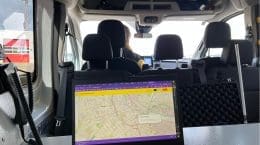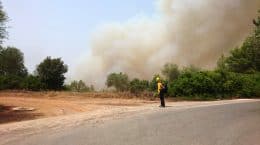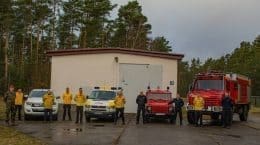Last October, four @fire leaders from all over Germany took part in a special course run by the Pau Costa Foundation on the use of utility fires in forested areas in Spain. All participating @fire members are particularly experienced operational forces, with the career status of Wildlandfirefighting Specialist incl. Empowerment and training for operational command.
The five-day English-language course in technical fire management covered the basics of meteorology, fire ecology and the systemic use of commercial fire operations for the prevention and tactical control of vegetation fires. Among other things, topics such as the execution of a pre-fire or counter-fire were trained theoretically as well as practically. For this, it had already been necessary to study some technical literature in advance in order to be able to spend the first few days at the Institut de seguretat pública de catalunya (Fire Service Academy of Catalonia).
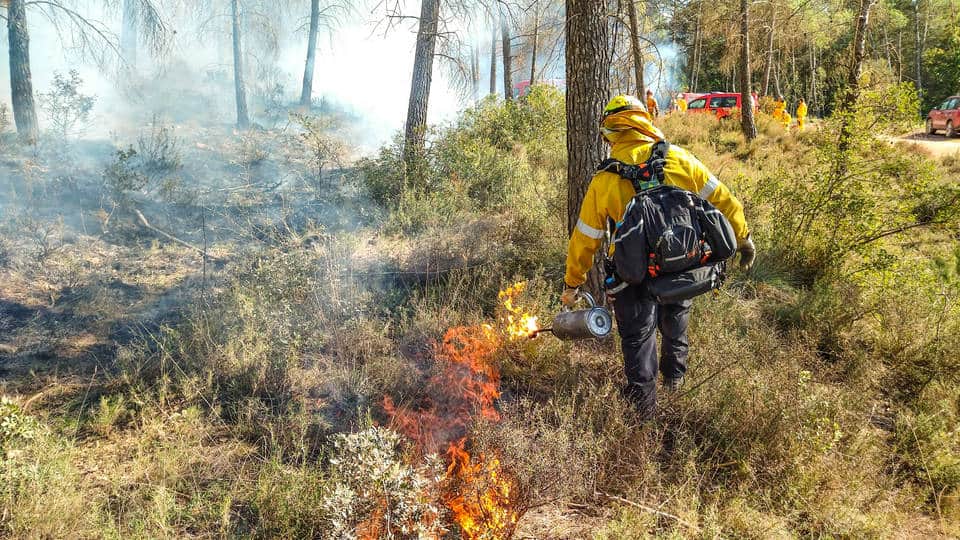
Together with 10 other leaders from the Netherlands, Italy, Northern Ireland, Spain and the USA, after the initial in-house days in Barcelona, the first preventive fires were set in the hinterland of Catalonia under the guidance of numerous instructors and lecturers from the PauCosta Foundation and a Spanish fire brigade specialist unit for forest fires (GRAF unit). All in all, more than 100 hectares of forest around Manresa and Montblanc were successfully managed by the controlled use of fire during the training week. In Catalonia, this form of forest management, outside the forest fire season, takes place up to one hundred times per mid-season.
Particularly noteworthy has been the targeted strategic implementation, with special attention paid to resource-saving support for the firing projects. Finally, each burning operation was accompanied by only one fire engine as a safety measure. In view of the strategic use of fire, however, no intervention with extinguishing water was necessary at any time, so that only post-extinguishing work was carried out with special procedures in the peripheral areas of the burnt areas.
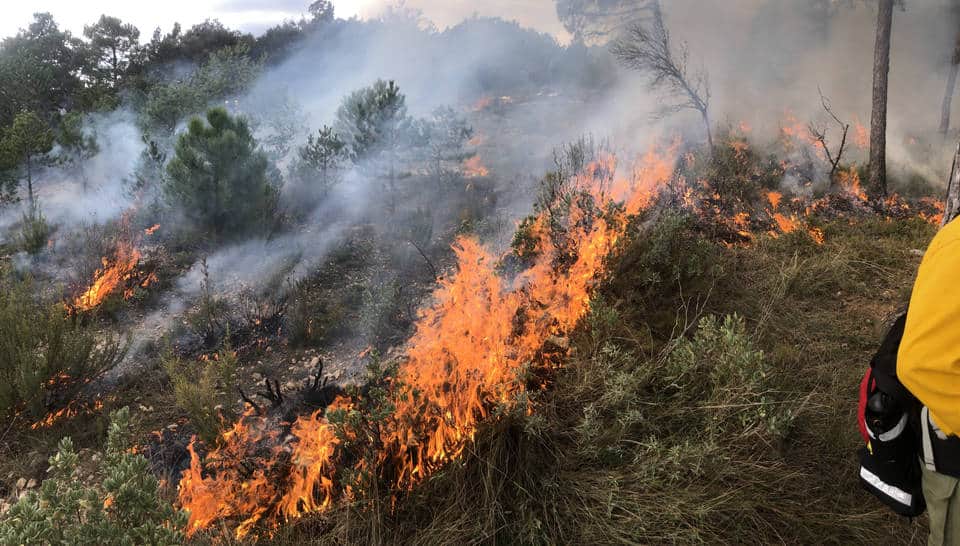
This past course in Spain is the first in a series of courses for tactical use. Through a cooperation with the PauCosta Foundation, our members were given the opportunity to complete various courses and careers in the coming years. Both the Spanish responders and the @fire members receive intensive training as part of their respective careers, strongly based on the US National Wildfire Coordination Group guidelines.
Due to the very similar training and identical terminology, it is possible to work hand in hand and learn from each other. By acting together and pooling our respective strengths and competencies, we are also able to teach various vegetation firefighting topics in Germany.
Therefore, within the framework of the cooperation, which has been ongoing since 2019, another fire analysis course of the PauCostaFoundation together with @fire will already take place in Germany in November 2021.


